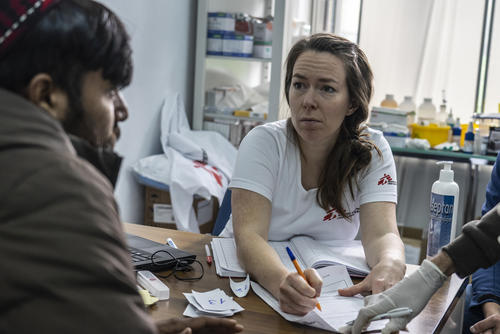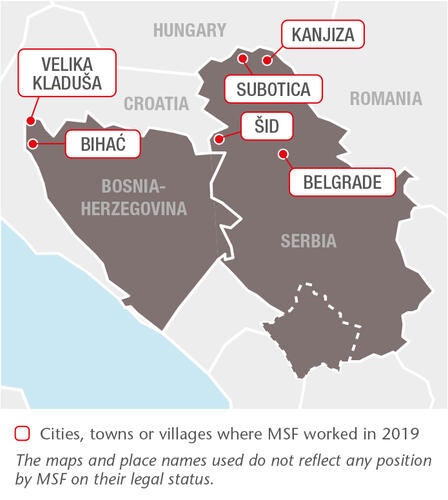
16,600
16,6
630
63
In the Serbian capital, Belgrade, Médecins Sans Frontières (MSF) continued to run a clinic providing general healthcare, mental health services, social support, and water and sanitation activities for migrants and refugees. Between January and December, we conducted 12,000 medical consultations and 590 individual mental health sessions in the city.
Our teams also carried out outreach activities in several informal settlements around the border towns of Šid, Subotica and Kanjiža for people living outside the Serbian reception centres. We provided a total of 560 medical consultations, 20 individual mental health consultations and 22 group mental health sessions.
In the second half of the year, we saw an increase in the number of people arriving in Bosnia-Herzegovina with the intention of entering Croatia and continuing further west. Thousands tried to cross the Croatian border during the summer, and at times there were more than 3,500 people living in informal settlements and abandoned buildings around the border towns of Velika Kladuša and Bihać.
We returned to Bosnia to offer medical and mental health assistance in collaboration with the medical authorities to people living outside the official camps and in the new camp, Vučjak. We conducted a total of 3,560 medical consultations. Most of the conditions we treated – such as skin diseases, respiratory tract infections and musculoskeletal pain – were linked to poor living conditions.
Our teams also treated 116 patients for intentional physical violence. Of these, 104 (90 per cent) reported that the perpetrators were either state or border authorities.

















